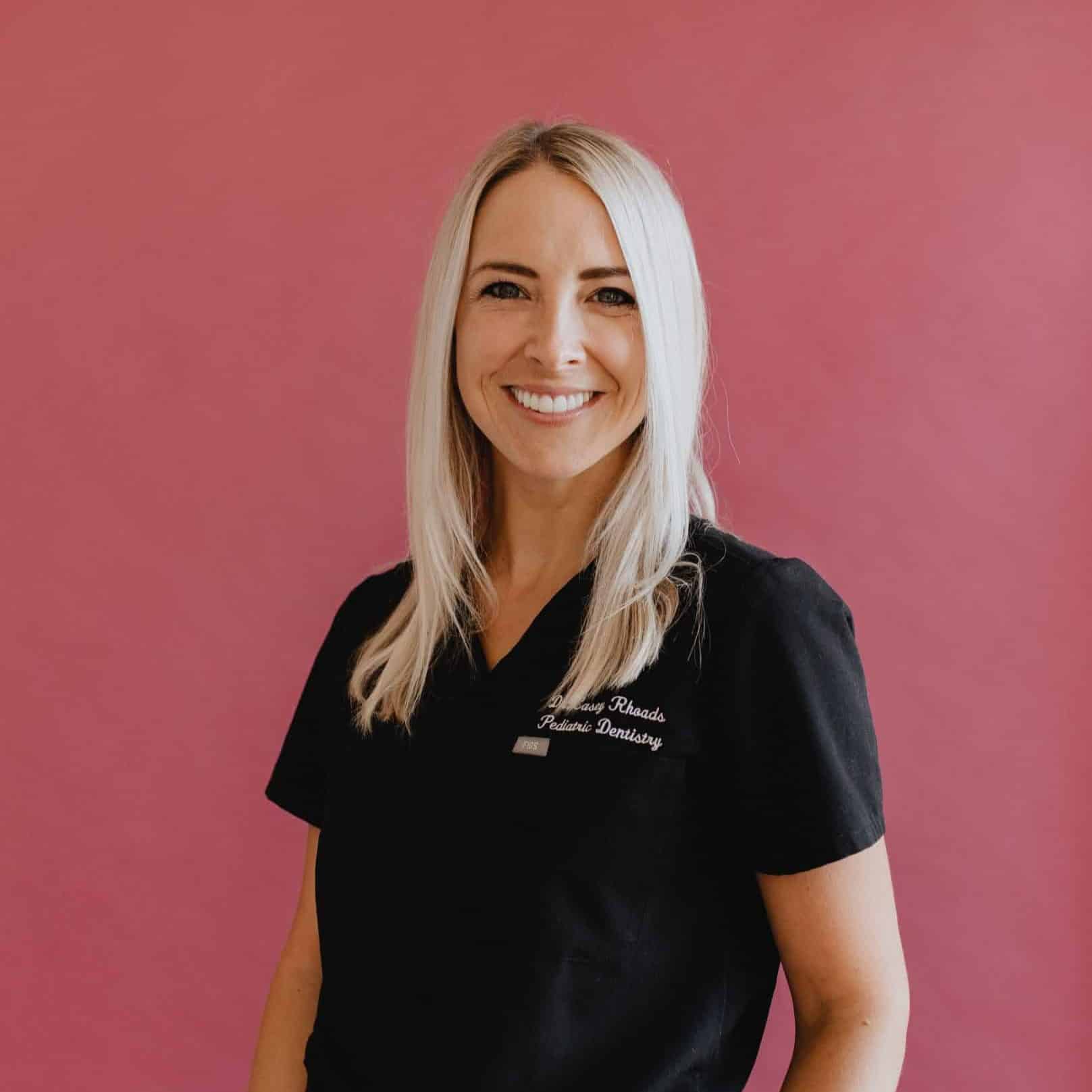
When and How to Start Dental Care for Children with Special Needs
At Honey Bee Pediatric Dental Co., we believe that every child deserves a gentle and empowering start to their oral health journey, especially those with special needs. Starting dental care early provides critical opportunities for prevention, habit formation, and relationship-building between the child, caregiver, and dental team. Whether your child has sensory sensitivities, developmental delays, or a medical condition that affects oral health, our compassionate, education-focused team is here to help.
Contact Honey Bee Pediatric Dental Co. today to schedule your child’s first visit and begin a lifetime of healthy, confident smiles.
This Article Will Address:
- What age to start dental care for children with special needs
- When to schedule the first dental visit
- Challenges and solutions for oral hygiene
- How to prepare for the first appointment
- What to expect during the first consultation
- How we manage dental anxiety
- How often to visit the dentist
- Why pediatric dental care is essential for children with special needs
What Is the Best Age to Start Dental Care for Children with Special Needs?
The best time to begin dental care for children with special needs is by age 1, or when the first tooth appears—whichever comes first. This recommendation comes from the American Academy of Pediatric Dentistry and applies to all children, including those with developmental, sensory, or medical differences.
Early visits allow us to:
- Catch potential issues before they become bigger problems
- Start building familiarity and trust
- Offer parents specific strategies for at-home care
At Honey Bee Pediatric Dental Co., we practice anticipatory guidance that proactively educates parents about what to expect in their child’s dental development and how to stay ahead of potential challenges. It’s one of the most powerful ways we support families in the early stages of care.
Tips for At-Home Oral Hygiene with Special Needs
For many families, home care can feel overwhelming. Here are some practical strategies to make it easier and more effective:
- Use a timer or a favorite song to guide brushing time
- Try toothbrushes with wider grips or gentle vibrations for sensory-sensitive children
- Choose fluoride toothpaste with a mild taste
- Let your child practice brushing on a stuffed animal first
- Create a visual brushing schedule with checkboxes or photos
When Should a Child with Special Needs First See a Dentist?
As mentioned above, the first visit should happen by age 1 or within six months of the first tooth erupting. Starting early can help reduce dental anxiety, make brushing a familiar part of daily life, and give caregivers confidence in managing oral health.
Honey Bee Pediatric Dental Co. proudly welcomes children of all needs and abilities at any age. Whether your child is an infant, a toddler, or older and new to dental care, we’ll meet them where they are.
What Challenges Do Special Needs Children Face in Oral Hygiene?
Children with special needs often face unique oral health concerns due to physical, sensory, or behavioral conditions. These may include:
- Sensory sensitivities to taste, sound, or touch
- Motor skill delays that make brushing difficult
- Communication differences that hinder expressing discomfort or pain
- Medication side effects, such as dry mouth or gum inflammation
At Honey Bee Pediatric Dental Co., we help parents navigate these challenges through education, personalized dental care plans, and practical tools like adaptive toothbrushes, visual aids, and caregiver coaching. Visit our educational resources section for more support.
How Do I Prepare My Special Needs Child for Their First Dental Visit?
Preparation goes a long way in building a successful experience. Here are a few steps to take before your child’s first visit:
- Schedule your appointment at a calm time of day
- Review photos or a virtual tour of our office together
- Use a social story to explain what will happen at the appointment
- Bring your child’s favorite toy or comfort item
- Let us know ahead of time about any sensory triggers or preferences
Our pediatric dental offices are designed with kids in mind—from calming décor to distraction tools—and our team is specially trained to support children who need extra time, explanation, or flexibility.
What Should I Expect at a Special Needs Dental Consultation?
The first visit is all about learning and comfort, not pressure. A typical new patient consultation includes:
- A discussion of your child’s medical and behavioral history
- A conversation about your goals, questions, and concerns
- An evaluation of your child’s sensory preferences and comfort level
- A gentle, visual exam (as tolerated)
Every child is different, and we tailor the visit to their needs. If we don’t complete everything on the first visit, that’s perfectly okay. Building trust is always the priority.
How Do Dentists Manage Anxiety in Children with Special Needs?
Dental anxiety is common, especially in children with sensory or behavioral conditions. At Honey Bee Pediatric Dental Co., we use a number of non-pharmacological techniques to help children feel safe and calm:
- Tell-show-do: We explain and demonstrate each step before doing anything
- Visual cues: Visual charts and social stories provide predictability
- Positive reinforcement: Praise and small rewards build confidence
- Desensitization: Gradual exposure helps increase comfort over time
We also offer a full range of sedation options when needed for comfort and safety:
- Nitrous oxide (laughing gas)
- Oral conscious sedation
- IV sedation or hospital-based general anesthesia
How Often Should Children with Special Needs Go to the Dentist?
For many children with special needs, we recommend checkups every 3 to 6 months, depending on their oral health, risk factors, and behavior. Regular visits help:
- Catch issues like cavities or gum disease early
- Maintain oral hygiene between cleanings
- Monitor growth, development, and eruption patterns
We’ll work with your family to determine the right visit frequency and help you feel supported every step of the way.
Why Choose a Pediatric Dentist for Special Needs Dentistry?
Pediatric dentists receive additional training in:
- Child behavior and psychology
- Medical conditions and developmental differences
- Sedation and emergency care for children
Dr. Rebecca Ferns and Dr. Casey Rhoads are board-certified pediatric dentists with years of experience in special needs care. They are deeply committed to helping every child—regardless of challenges—feel safe, respected, and understood.
Our mission is to provide individualized, relationship-based care that empowers families, educates parents, and builds positive dental experiences from the start.
Compassionate Dental Care for Every Child in Lawrence, Lenexa, and Prairie Village
Early, personalized dental care is one of the most important gifts you can give your child. At Honey Bee Pediatric Dental Co., we’re honored to support children with special needs and their families—whether it’s your child’s first visit or your tenth.
Our team is here to offer comfort, education, and tailored solutions so that dental care becomes a source of confidence, not anxiety.
To schedule a comfortable, personalized dental visit for your child with special needs, contact Honey Bee Pediatric Dental Co. in Lawrence, Lenexa, or Prairie Village today. We’re here to support your child’s smile every step of the way.
Sources
- American Academy of Pediatric Dentistry (AAPD). “Dental Home” and “Guidelines for Management of Special Health Care Needs.”
- Centers for Disease Control and Prevention (CDC). “Children with Special Health Care Needs.”
- American Dental Association (ADA). “Early Childhood Oral Health.”

Dr. Casey Rhoads, originally from Hays, Kansas, has been a trusted pediatric dentist in the Kansas City area since 2016. Known for her exceptional communication skills and compassionate approach, Dr. Rhoads prioritizes honest, empathetic care to help ease anxiety and create a positive dental experience for children and their parents. Outside of the office, she enjoys traveling and spending quality time with her husband and three children, cherishing every moment with her family and young patients alike.
